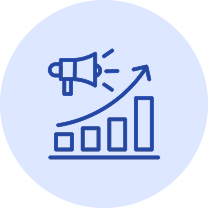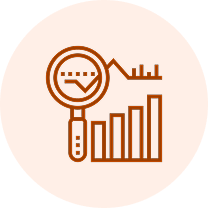Read time: 4 mins
Launching a startup often feels like embarking on an uncharted journey. Imagine a young entrepreneur, Sarah, with a brilliant idea for a new tech gadget. She’s passionate and confident, but without understanding her market, even the best ideas can flounder. Market research becomes her compass, providing direction and insights. It’s crucial for startups to understand their target audience, competition, and industry trends. Effective market research minimizes risks, identifies opportunities, and guides strategic decisions, making it an indispensable tool for any startup.
Types of market research tools
Startups have access to a variety of market research tools that can be broadly categorized into primary and secondary research tools. Primary research tools involve collecting new data directly from sources, while secondary research tools leverage existing data. Both types offer valuable insights and can be used in tandem to form a comprehensive market understanding.
Primary research tools for startups
Primary research tools are essential for gathering specific information directly from potential customers. Techniques like surveys, interviews, focus groups, and observations provide first-hand insights into consumer behaviour, preferences, and needs. These tools help startups tailor their products or services to meet market demands accurately.
Secondary research tools for startups
Secondary research tools utilize existing data from various sources such as industry reports, market statistics, academic journals, and online databases. Startups can save time and resources by analyzing this readily available information to understand market trends, identify competitors, and gauge industry standards. Sources like Statista, IBISWorld, and government publications are valuable for secondary research.
Online survey tools for market research
Online surveys are a cost-effective way for startups to gather large amounts of data quickly. Tools like SurveyMonkey, Google Forms, and Typeform allow startups to create customizable surveys, distribute them easily, and analyze responses efficiently. These tools provide insights into customer preferences, product feedback, and market trends, aiding in data-driven decision-making.
Customer feedback tools for market research
Customer feedback is vital for startups to understand how their products or services are perceived. Tools like Zendesk, Trustpilot, and UserVoice enable startups to collect, manage, and analyze customer reviews and feedback. This real-time data helps startups make necessary improvements and build stronger relationships with their customers.
Competitive analysis tools for startups
Understanding the competition is crucial for any startup. Tools like SEMrush, Ahrefs, and SpyFu offer insights into competitors’ strategies, including their marketing efforts, keyword usage, and backlink profiles. These tools help startups identify gaps in the market, refine their strategies, and stay ahead of competitors.
Trend analysis tools for startups
Staying ahead of industry trends is vital for startups to remain competitive. Tools like Google Trends, TrendWatching, and CB Insights provide data on emerging trends, consumer interests, and market shifts. By leveraging these tools, startups can anticipate changes and adapt their strategies accordingly.
Data visualization tools for market research
Data visualization tools transform complex data sets into easy-to-understand visual formats. Tools like Tableau, Power BI, and Google Data Studio help startups present their research findings clearly and compellingly. These tools make it easier to identify patterns, trends, and insights that can inform strategic decisions.
Conclusion: Choosing the right market research tools for your startup
Selecting the right market research tools is crucial for a startup’s success. By leveraging a combination of primary and secondary research tools, online surveys, customer feedback platforms, competitive analysis, trend analysis, and data visualization tools, startups can gain comprehensive market insights. At Zamplia, we assist startups in navigating these tools to make informed decisions. With the right tools, your startup can chart a path to success. Are you ready to make your mark?
FAQs
Primary market research involves collecting new, first-hand data directly from sources through methods such as surveys, interviews, and focus groups. Secondary market research utilizes existing data from sources like industry reports, market statistics, and online databases.
When choosing an online survey tool, consider factors such as ease of use, customization options, data analysis features, and cost. Tools like SurveyMonkey, Google Forms, and Typeform are popular for their user-friendly interfaces and robust features.
Competitive analysis helps startups understand their market position, identify gaps and opportunities, and refine their strategies. Tools like SEMrush, Ahrefs, and SpyFu provide insights into competitors’ marketing efforts and help startups stay ahead in the market.
Sample Made Simple.
Increase cost efficiency, feasibility and quality between project and vendor, all on one platform with Zamplia. Take a tour or book a demo with us today.

 Quality Assurance
Quality Assurance
 Real-Time Analytics
Real-Time Analytics
 Sample Marketplace
Sample Marketplace
 Survey Builder
Survey Builder
 Calibr8
Calibr8 API & Integrations
API & Integrations Custom Scripting
Custom Scripting Multi-Language Support
Multi-Language Support White-Label Solutions
White-Label Solutions Brand & Advertising Research
Brand & Advertising Research Competitive Intelligence
Competitive Intelligence Customer Experience Studies
Customer Experience Studies Market Segmentation
Market Segmentation Product Testing & Feedback
Product Testing & Feedback Academic Research
Academic Research Financial Services Research
Financial Services Research B2B Professional Panels
B2B Professional Panels Consumer Research Panels
Consumer Research Panels Global Panel Network
Global Panel Network Premium Provider Partners
Premium Provider Partners Social Media Recruitment
Social Media Recruitment Fraud Detection System
Fraud Detection System Profile Verification
Profile Verification Quality Scoring Algorithm
Quality Scoring Algorithm Real-Time Quality Monitoring
Real-Time Quality Monitoring Response Time Analysis
Response Time Analysis Blog & Insights
Blog & Insights Case Studies
Case Studies